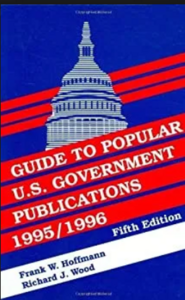File: 1676333294682.png (180.64 KB, 256x415, 256:415, popularGovPubs.png) ImgOps iqdb

I've found myself perusing books written by governments. It's really weird, because it feels like some bureaucrat spent an immense amount of time studying, compiling, and writing up a book that feels so oddly disconnected to them. Some of them are well known:
The 9/11 Commission Report
The Army Survival Field Manual
Some are stuff you'd never hear about normally, but it makes sense that some people would know about them:
Airplane flying handbook
https://www.faa.gov/regulations_policies/handbooks_manuals/aviation/airplane_handbook
But what I really find interesting are the ones that are really obscure and clearly had loads of work put into them, or so ridiculously specialized that you wonder who wanted it, or you'd figure there's already a textbook about it why would the government want their own? E.g.:
A book about Mulberries
https://archive.org/details/mulberryothersil119oliv/page/n1/mode/2up
A report about U.S. shipping
https://archive.org/details/in.ernet.dli.2015.227416/page/n9/mode/2up
Finite element analysis for bridges
https://permanent.fdlp.gov/gpo160253/hif18046.pdf
https://catalog.gpo.gov/ is a good place for a lot of these.
The 9/11 Commission Report
The Army Survival Field Manual
Some are stuff you'd never hear about normally, but it makes sense that some people would know about them:
Airplane flying handbook
https://www.faa.gov/regulations_policies/handbooks_manuals/aviation/airplane_handbook
But what I really find interesting are the ones that are really obscure and clearly had loads of work put into them, or so ridiculously specialized that you wonder who wanted it, or you'd figure there's already a textbook about it why would the government want their own? E.g.:
A book about Mulberries
https://archive.org/details/mulberryothersil119oliv/page/n1/mode/2up
A report about U.S. shipping
https://archive.org/details/in.ernet.dli.2015.227416/page/n9/mode/2up
Finite element analysis for bridges
https://permanent.fdlp.gov/gpo160253/hif18046.pdf
https://catalog.gpo.gov/ is a good place for a lot of these.
>It's really weird, because it feels like some bureaucrat spent an immense amount of time studying, compiling, and writing up a book that feels so oddly disconnected to them.
This characterization reminds me very strongly of Chinese imperial records, written in Classical Chinese. Imperial bodies used to record a great deal, though of course the vast majority of it is buried in chinese academic sites. There are a few very famous instances, such as the zuozhuan (左傳) which would be roughly equivalent to the roman annals from the regal period.
A personal favorite of mine is the story of the efforts of astronomical prediction in ancient china, described in the book "Heavenly Numbers: Astronomy and Authority in Early Imperial China" by Christopher Cullen. Of course, I wouldhave never heard about any of it otherwise.
This characterization reminds me very strongly of Chinese imperial records, written in Classical Chinese. Imperial bodies used to record a great deal, though of course the vast majority of it is buried in chinese academic sites. There are a few very famous instances, such as the zuozhuan (左傳) which would be roughly equivalent to the roman annals from the regal period.
A personal favorite of mine is the story of the efforts of astronomical prediction in ancient china, described in the book "Heavenly Numbers: Astronomy and Authority in Early Imperial China" by Christopher Cullen. Of course, I wouldhave never heard about any of it otherwise.